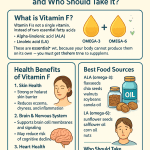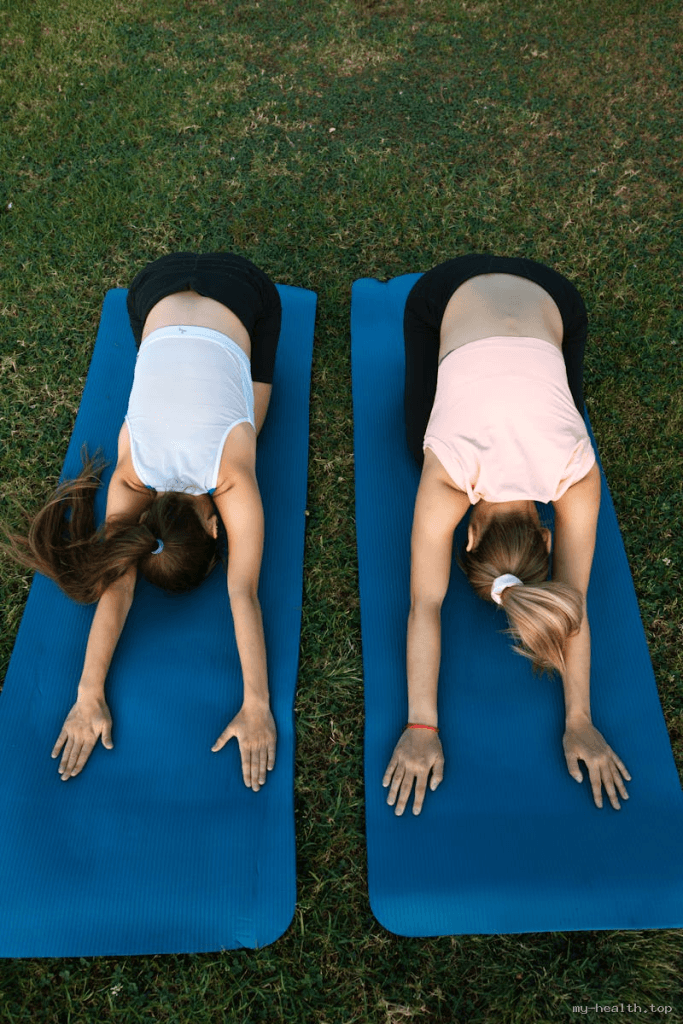This article is for informational purposes only and should not be considered medical advice. Always consult with a healthcare professional for personalized recommendations.
Understanding Menopause
Menopause is a natural phase in a woman’s life, typically occurring between the ages of 45 and 55. It marks the end of menstrual cycles and is diagnosed after 12 consecutive months without a period. This transition can bring a range of symptoms, from hot flashes to mood changes, that can significantly impact daily life. Understanding the underlying mechanisms can help demystify this phase and empower women to manage their symptoms effectively.
Pathophysiology of Menopause
At its core, menopause results from a decline in ovarian function, leading to decreased production of hormones, particularly estrogen and progesterone. This hormonal shift is not abrupt; rather, it occurs gradually during a transitional phase known as perimenopause, which can last several years. During this time, fluctuating hormone levels can lead to a variety of symptoms, as estrogen plays a crucial role in regulating numerous bodily functions.
The decrease in estrogen affects various body systems, including the reproductive, cardiovascular, and skeletal systems. For instance, lower estrogen levels can lead to decreased bone density, increasing the risk of osteoporosis. Additionally, the decline in estrogen can affect the body’s thermoregulation, leading to hot flashes and night sweats. Understanding these mechanisms can help women anticipate changes and seek appropriate interventions.
Common Symptoms of Menopause
During menopause, hormonal fluctuations can lead to various symptoms, including:
- Hot Flashes: Sudden feelings of warmth, often accompanied by sweating. These can occur at any time and may disrupt daily activities.
- Night Sweats: Hot flashes that occur during sleep, disrupting rest and leading to fatigue.
- Vaginal Dryness: Reduced estrogen can lead to dryness and discomfort during intercourse, impacting sexual health.
- Mood Changes: Increased irritability, anxiety, or depression are common, often linked to hormonal fluctuations.
- Sleep Disturbances: Difficulty falling or staying asleep can be exacerbated by night sweats, leading to a vicious cycle of fatigue and mood changes.
Effective Management Strategies
Managing menopause symptoms effectively involves a combination of lifestyle changes, natural remedies, and medical treatments. Here’s how you can navigate this transition with confidence.
Lifestyle Changes
Making certain lifestyle adjustments can alleviate many menopause symptoms. Here are some effective strategies:
1. Stay Active
Regular physical activity can help reduce hot flashes, improve mood, and promote better sleep. Aim for at least 150 minutes of moderate aerobic activity each week, such as brisk walking or swimming. Strength training exercises can also help maintain bone density, which is crucial as estrogen levels decline. Additionally, consider incorporating flexibility and balance exercises, such as yoga or tai chi, which can enhance physical stability and reduce the risk of falls.
2. Maintain a Healthy Diet
A balanced diet rich in fruits, vegetables, whole grains, and lean proteins can support overall health. Foods high in phytoestrogens, like soy products, flaxseeds, and legumes, may help mitigate symptoms. Additionally, incorporating omega-3 fatty acids from fish or flaxseed oil can support heart health and mood stability. Avoiding excessive caffeine and alcohol can also help minimize hot flashes and improve sleep quality.
3. Stay Hydrated
Drinking plenty of water can help combat dryness and support overall well-being. Aim for at least eight glasses of water a day, adjusting based on your activity level and climate. Herbal teas can also be soothing and hydrating. Consider adding hydrating foods, such as cucumbers and watermelon, to your diet for additional moisture.
4. Manage Stress
Practices such as yoga, meditation, or deep breathing can help manage stress and improve emotional well-being. Consider setting aside time each day for relaxation techniques. Engaging in hobbies or social activities can also provide emotional support and distraction from symptoms. Remember, it’s essential to prioritize self-care during this transition.
Natural Remedies
Many women seek natural remedies to alleviate menopause symptoms. While some may find relief, it’s essential to consult with a healthcare provider before starting any new treatment. Here are a few options:
1. Herbal Supplements
Herbs like black cohosh and evening primrose oil are popular among women seeking natural relief from hot flashes. However, research on their effectiveness varies, so discuss these options with your doctor. Always consider potential interactions with other medications. Additionally, some women find relief with red clover or ginseng, but again, professional guidance is key.
2. Acupuncture
Some studies suggest that acupuncture may help reduce hot flashes and improve quality of life during menopause. It’s worth exploring this holistic approach if you’re open to alternative therapies. A qualified practitioner can tailor treatments to your specific symptoms, ensuring a personalized experience.
Medical Treatments
If lifestyle changes and natural remedies do not provide sufficient relief, medical treatments may be necessary. Here are common options:
1. Hormone Therapy
Hormone therapy (HT) involves taking estrogen or a combination of estrogen and progesterone to alleviate symptoms. While effective for many women, HT is not suitable for everyone due to potential risks, including blood clots and certain cancers. Discuss your medical history with your healthcare provider to determine if HT is right for you. It’s important to weigh the benefits against the risks carefully, particularly in light of personal and family health histories.
2. Non-Hormonal Medications
For women who cannot or prefer not to take hormone therapy, non-hormonal medications such as certain antidepressants or gabapentin may help reduce hot flashes and improve mood. These options can be particularly beneficial for those with a history of hormone-sensitive conditions. Your healthcare provider can help determine the best medication based on your individual needs.
3. Vaginal Estrogen
For vaginal dryness, localized estrogen treatments (creams, tablets, or rings) can provide relief without the systemic effects of hormone therapy. This targeted approach can improve vaginal health and enhance sexual function, allowing for a more fulfilling intimate life.
Patient Vignette
Meet Sarah, a 52-year-old woman who experienced debilitating hot flashes and mood swings during menopause. After consulting her healthcare provider, she adopted a regular exercise routine, focused on a balanced diet, and explored acupuncture for symptom relief. With these changes, Sarah found a significant reduction in her symptoms, allowing her to feel more in control and enjoy this new phase of life. Her story highlights the importance of a personalized approach and the potential for positive outcomes through lifestyle adjustments.
Myth vs. Fact
| Myth | Fact |
|---|---|
| Menopause happens suddenly. | Menopause is a gradual process that can take several years, known as perimenopause. |
| All women experience severe symptoms. | Symptoms vary widely; some women have mild symptoms while others may experience significant challenges. |
| Hormone therapy is the only option. | Many effective non-hormonal treatments and lifestyle changes can help manage symptoms. |
| Menopause means the end of sexual activity. | While some women experience changes in libido, many continue to have fulfilling sexual lives with appropriate treatments. |
| Weight gain is inevitable during menopause. | While hormonal changes can affect weight, maintaining a healthy lifestyle can help manage weight effectively. |
Frequently Asked Questions
1. What are the first signs of menopause?
The first signs often include irregular periods, hot flashes, and changes in mood. Women may also notice changes in sleep patterns and increased vaginal dryness.
2. How long do menopause symptoms last?
Symptoms can last from a few months to several years, with some women experiencing them for a decade or more. The duration can vary significantly based on individual factors.
3. Can diet affect menopause symptoms?
Yes, a healthy diet can help alleviate symptoms. Foods rich in phytoestrogens may be particularly beneficial. Reducing caffeine and alcohol intake can also help minimize hot flashes.
4. Is hormone therapy safe?
While effective, hormone therapy may not be suitable for everyone. Discuss potential risks and benefits with your healthcare provider, especially if you have a history of certain health conditions.
5. Are there any exercises that help with menopause symptoms?
Yes, regular aerobic exercise, strength training, and yoga can help manage symptoms and improve overall health. Activities that promote flexibility and balance are also beneficial.
Key Takeaways
- Menopause is a natural transition that varies for each woman.
- Lifestyle changes like diet and exercise can significantly alleviate symptoms.
- Natural remedies and medical treatments are available for symptom management.
- Consult a healthcare provider to determine the best treatment options for you.
- Understanding menopause myths can empower women during this transition.
References
- PubMed: Menopause and Its Symptoms
- CDC: Menopause Overview
- NHS: Managing Menopause Symptoms
- WHO: Women's Health and Menopause
- UpToDate: Hormone Therapy for Menopause
- Mayo Clinic: Menopause Treatment Options
- Harvard Health: Natural Remedies for Menopause Symptoms








Post a comment